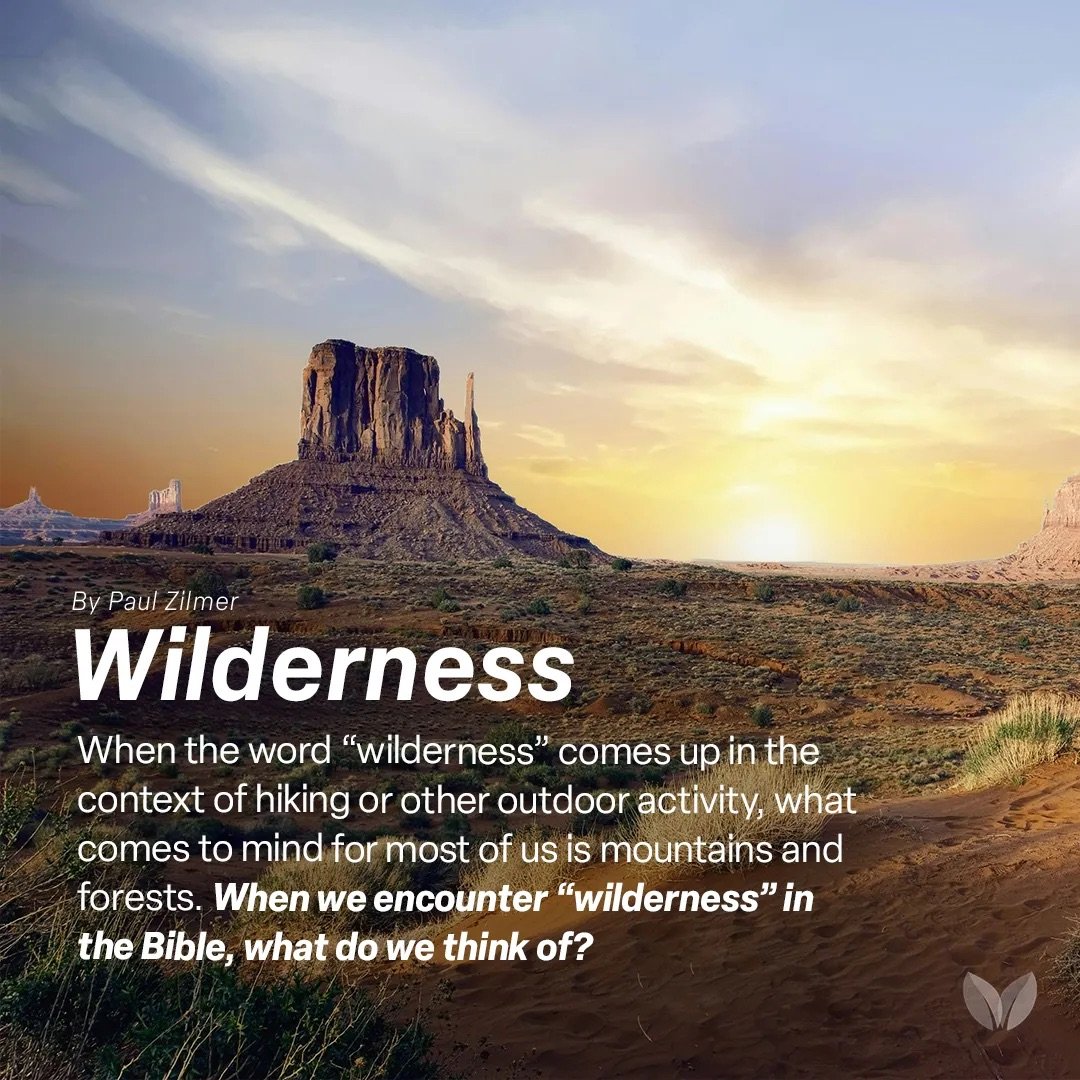Wilderness
My wife and I enjoy hiking in wilderness areas. We’re day hikers, not backpackers, so we’re limited to kind of nibbling at the edges of the wilderness. Even so, we are continually in awe of the creation and its Creator when we’re out there. We love being surrounded by the works of the Almighty, with little evidence of the works of mankind.
When the word “wilderness” comes up in the context of hiking or other outdoor activity, what comes to mind for most of us is mountains and forests.
When we encounter “wilderness” in the Bible, what do we think of? I think for most people it immediately translates to “desert”. Which isn’t entirely wrong, because some wilderness is in fact desert. Then for many, the word “desert” immediately means “lifeless”. The mental image is sand dunes as far as the eye can see, which isn’t what most deserts are like.
In actual fact, very little desert is lifeless. Many of the hikes my wife and I take are in the desert, and one of the attractions is that the desert is filled with life. It’s just different from forests or wetlands—both plants and animals must be very frugal in the use of moisture.
Back to the idea of wilderness. Famously, the people of Israel spent 40 years in the wilderness after leaving Egypt and before entering the land God promised them. The Hebrew word translated “wilderness” literally means “pasture”. By extension, it means any uninhabited land. And that’s just what the word wilderness means in ordinary usage here in North America. It’s wild land, inhabited by wild plants and animals, not inhabited by humans.
There are a couple other Hebrew words, also often translated as wilderness, that do mean a desolation. But this isn’t where Israel lived for 40 years. So for many, I think, an adjustment in the mental picture would be helpful.
The New Testament also has its wildernesses. The Greek word translated “wilderness” is used of the location where John the Baptist worked (e.g. Mark 1:3-4), and where Jesus was tempted (verses 12-13). Leading up to the feeding of the 4,000 the disciples reacted to Jesus’s suggestion, “How can we feed all these here in the wilderness?” (Mark 8:4) They weren’t in a desert. They were out in the countryside, and there was no place to buy bread.
In Jesus’s parable of the lost sheep, where does the shepherd leave the 99? It’s in the wilderness. (Luke 15:4) This same Greek word is also used in the New Testament when referring to the wilderness the people of Israel spent 40 years in. And it’s used for the solitary or secluded places where Jesus would withdraw to pray or to teach his disciples (e.g. Mark 1:35 & 6:31-32). Not desert.
So, does a revised concept of wilderness really matter? Maybe so.
The writer to the Hebrews doesn’t use the word wilderness, but it strikes me that he has the concept in mind, treating it as a parable:
For the bodies of those animals whose blood is brought into the holy places by the high priest as a sacrifice for sin are burned outside the camp. So Jesus also suffered outside the gate in order to sanctify the people through his own blood. Therefore let us go to him outside the camp and bear the reproach he endured. For here we have no lasting city, but we seek the city that is to come. (Hebrews 13:11-14)
The present “city” isn’t going to last. Jesus overcame his temptations out in the countryside, he taught out in the countryside, he made his sacrifice outside the city—literally. The writer is saying to us, “We need to take it as a figure. The work of Messiah wasn’t part of the works of mankind, the ‘city’. He was all about getting out of that—out into the works of God. We need to join him there—outside the ‘city’ of mankind.”
Wilderness isn’t a bad place to be. In fact, it’s where we find Jesus. The “city” folk might think there’s no life there. But it’s actually where the only real life is to be found.
Love, Paul


